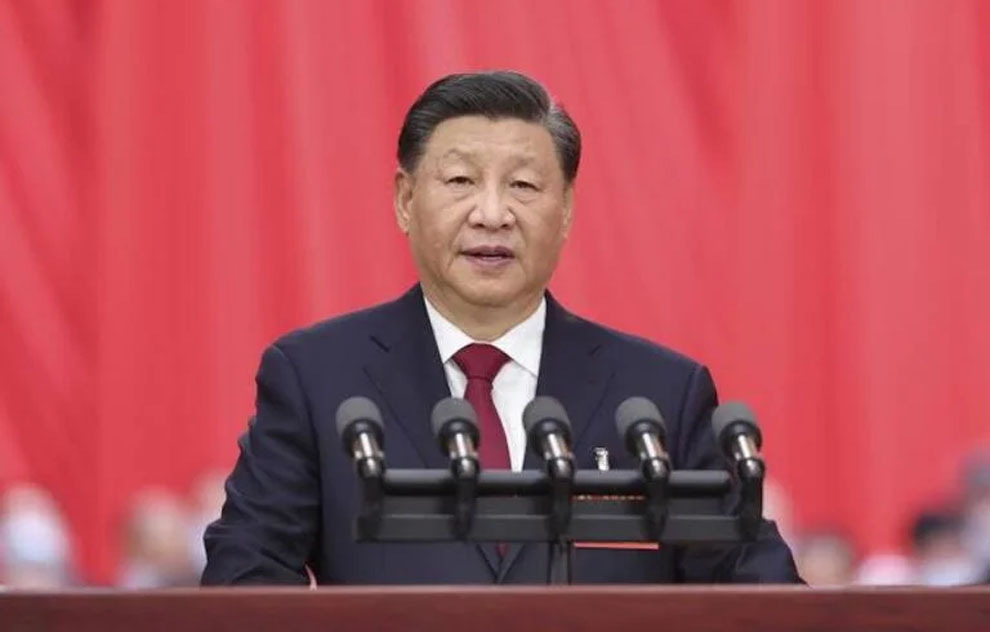International
Alcohol kills 2.6 million people annually, says WHO

Alcohol kills 2.6 million people annually, says WHO
Alcohol kills nearly three million people annually, the World Health Organization said on Tuesday, adding that while the death rate had dropped slightly in recent years it remained “unacceptably high”.
The United Nations health agency’s latest report on alcohol and health said alcohol causes nearly one in 20 deaths globally each year, through drunk driving, alcohol-induced violence and abuse, and a multitude of diseases and disorders.
The report said 2.6 million deaths were attributed to alcohol consumption in 2019 — the latest available statistics — accounting for 4.7 per cent of all deaths worldwide that year.
Nearly three-quarters of those deaths were in men, it said.
“Substance use severely harms individual health, increasing the risk of chronic diseases, mental health conditions, and tragically resulting in millions of preventable deaths every year,” WHO director-general Tedros Adhanom Ghebreyesus said.
He pointed out that there had been “some reduction in alcohol consumption and related harm worldwide since 2010”.
“(But) the health and social burden due to alcohol use remains unacceptably high,” he continued, highlighting that younger people were disproportionately affected.
The highest proportion of alcohol-attributable deaths in 2019 — 13 per cent — were among people aged 20 to 39, the WHO said.
READ ALSO:
- Sultan: Check your facts well, Sokoto govt replies Shettima
- Chinese investor seizes Nigeria’s properties in UK over debt
- Car lovers relish Chery’s special offers at Circle Mall Lekki display
Drinking is linked to a slew of health conditions, including cirrhosis of the liver and some cancers.
Of all the fatalities it caused in 2019, the report found that an estimated 1.6 million were from noncommunicable diseases.
Of these, 474,000 were from cardiovascular diseases, 401,000 from cancer and a huge 724,000 from injuries, including traffic accidents and self-harm.
Alcohol abuse also makes people more susceptible to infectious diseases such as tuberculosis, HIV and pneumonia, the report found.
An estimated 209 million people lived with alcohol dependence in 2019 — 3.7 per cent of the global population.
Total per capita consumption worldwide decreased slightly to 5.5 litres of alcohol in 2019 from 5.7 litres nine years earlier, the report found.
However, alcohol consumption overall is unevenly distributed around the globe.
Well, over half of the world’s population over the age of 15 abstains completely.
Europe accounted by far for the highest levels of per capita drinking, at 9.2 litres, followed by the Americas at 7.5 litres.
The lowest consumption was in predominantly Muslim countries in Northern Africa, the Middle East and Asia, the report said.
READ ALSO:
- Netanyahu: Israeli forces will move to Lebanon border as Rafah winds down
- Sokoto government denies plot to dethrone Sultan
- Five killed, dozens injured in Russian missile attack on Ukraine’s Pokrovsk
Among people who drank alcohol in 2019, the report determined they consumed 27 grammes of pure alcohol per day on average.
That is roughly equivalent to two glasses of wine, two small bottles of beer or two shots of spirits.
“This level and frequency of drinking is associated with increased risks of numerous health conditions and associated mortality and disability,” the WHO warned.
In 2019, a full 38 per cent of current drinkers acknowledged having engaged in heavy episodic drinking, defined as consuming at least 60 grammes of pure alcohol on one or more occasions in the preceding month.
Globally, 23.5 per cent of 15- to 19-year-olds were considered current drinkers.
That jumped to more than 45 per cent for people in this age group living in Europe, and to nearly 44 per cent in the Americas.
The WHO said it was essential to improve access to quality treatment for substance use disorders.
In 2019, the proportion of people contacting such treatment services ranged from below one per cent to 35 per cent in countries providing this data.
“Stigma, discrimination and misconceptions about the efficacy of treatment contribute to these critical gaps in treatment provision,” Vladimir Poznyak, head of WHO’s unit for alcohol, drugs and addictive behaviours, told reporters.
Alcohol kills 2.6 million people annually, says WHO
AFP
International
UK records over 22,000 asylum-seeking Nigerians

UK records over 22,000 asylum-seeking Nigerians
The United Kingdom Home Office received 22,619 asylum petitions from Nigerian nationals between 2010 and 2024.
Nigerians accounted for one in every 30 UK asylum claims over the time, ranking 11th in the Home Office’s recently released year-end asylum and resettlement figures.
According to the Home Office, over two times as many Nigerians (2,841) requested asylum in 2024 than in 2023 (1,462).
Overall, 108,138 people applied for asylum in the UK in 2024, representing a 378 per cent increase from 2010. The majority were first-time claims by South Asian and Middle Eastern nationals.
Iran topped the chart with 75,737, perhaps pushed by the rising persecution of dissidents by the Iranian regime.
Pakistan trailed far behind with 57,621. In 2024, 10,542 Pakistanis sought asylum in the UK, prompted by post-election upheaval, rising inflation, and an increase in blasphemy cases, which human rights groups argue provide strong grounds for protection claims.
Afghanistan has received 54,363 asylum petitions since 2010. In 2024, 8,508 Afghans sought sanctuary in the United Kingdom, a development that experts suggest is a continuation of the Taliban’s ouster of the Karzai administration in 2022.
That year, 11,358 Afghans applied for asylum in the United Kingdom, with 9,710 applications the following year.
Others include Albania (50,944), Iraq (45,711), Eritrea (37,687), Syria (34,997), and Bangladesh (31,744). Asylum seekers from Bangladesh increased from 5,097 in 2023 to 7,225 in 2024. The rise corresponded with the removal of previous Prime Minister Sheikh Hasina.
READ ALSO:
- Driver crushes one-year old boy to death in Ekiti
- Bring your children to compete with mine, MC Oluomo challenges those mocking his spoken English
- Insecurity: Presidency questions push for state police, accuses govs of not doing much
Sudan and India complete the top ten, with 30,897 and 30,179, respectively.
Nigeria’s 22,619 filings are just ahead of Sri Lanka’s 22,059 and surpass Vietnam, China, and Turkey. Brazil, Kuwait, Yemen, Colombia, and Jordan were at the bottom of the list, with each providing fewer than 6,500 claims.
Analysts attribute Nigeria’s rise on the list to tough conditions such as insecurity, bandit assaults, abduction, and a collapse in household purchasing power following the naira’s devaluation in 2023.
In a conversation with our correspondent, Charles Onunaiju, Research Director, Centre for China Studies, Abuja, stated, “We face a difficulty. Nigeria is becoming unfriendly, particularly for young people with limited opportunities, and there is a desperate desire to travel overseas.
According to local reports, young professionals who previously entered the UK on skilled worker visas are increasingly hedging their bets by applying for asylum once there; others arrive irregularly via continental Europe, citing kidnapping threats and communal attacks in their affidavits.
According to the reports, in most cases, petitioners also claim political persecution under Nigeria’s wide cybercrime legislation or discrimination based on sexual orientation—both of which are protected under the Refugee Convention.
According to the Home Office’s website, an asylum seeker must demonstrate a “well-founded fear of persecution” because of their race, religion, nationality, political opinion, or membership in a certain social group.
The Home Office determines the initial decisions, and negative rulings can be challenged in the Immigration and Asylum Chamber.
In theory, the Illegal Migration Act of 2023 makes people who travel through a safe third nation inadmissible.
However, the UK government’s proposed removal process, particularly its contract with former Prime Minister Rishi Sunak to transfer claimants to Rwanda, is still enmeshed in legal obstacles.
As a result, the majority of 2024 and 2025 arrivals will continue to use the existing system.
Dr Aliyu Ilias, an Abuja-based development economist, told The PUNCH that as more Nigerians leave and stay permanently overseas, the country will have less trained labour.
He stated that with most Nigerians confronting both economic headwinds and deteriorating security at home, the British asylum route, however uncertain, still appears to offer a better prospect.
Ilias explained, “It’s definitely a cause of concern because this includes our professionals who are moving, and it takes a whole lot to train these professionals.
“In the medical sector, Nigeria subsidises a lot to get people trained. You cannot get trained as a medical doctor or an engineer abroad for a cheaper cost compared to what we get in Nigeria.
“So, it is total brain drain in the long run, and for the economy, it is reducing our GDP. The appalling part is that most of our Nigerian brothers and sisters who go out do not return. They get permanent residency, and they become valuable to the immediate country.”
UK records over 22,000 asylum-seeking Nigerians
International
Harvard University sues Trump over funding cuts

Harvard University sues Trump over funding cuts
Harvard sued US President Donald Trump’s administration Monday in a sharp escalation of the fight between the prestigious university and the Republican, who has threatened its funding and sought to impose outside political supervision.
Trump has sought to bring several prestigious universities to heel over claims they tolerated campus anti-Semitism, threatening their budgets, tax-exempt status and the enrolment of foreign students, but Harvard has refused to bow.
“This case involves the Government’s efforts to use the withholding of federal funding as leverage to gain control of academic decision making at Harvard,” the Ivy League university said in a lawsuit filed in a Massachusetts federal court that named several other institutions targeted by Trump.
“The Government’s actions flout not just the First Amendment, but also federal laws and regulations,” said the complaint, which called Trump’s actions “arbitrary and capricious.”
Trump is furious at Harvard for rejecting government supervision of its admissions, hiring practices and political slant and last week ordered the freezing of $2.2 billion in federal funding to the storied institution.
The lawsuit calls for the freezing of funds and conditions imposed on federal grants to be declared unlawful, as well as for the Trump administration to pay Harvard’s costs.
Trump and his White House team have publicly justified their campaign against universities as a reaction to what they say is uncontrolled “anti-Semitism” and a need to reverse diversity programs aimed at addressing historical oppression of minorities.
READ ALSO:
- NNPCL: Ojulari’s ambitious five-year $60bn investment agenda
- Osimhen to rake in N136bn from Man United
- U20 AFCON: Flying Eagles tackle Young Pharaohs in friendly
The administration claims protests against Israel’s war in Gaza that swept across US college campuses last year were rife with anti-Semitism.
Many US universities, including Harvard, cracked down on the protests over the allegations at the time, with the Cambridge-based institution placing 23 students on probation and denying degrees to 12 others, according to protest organizers.
“Harvard can no longer be considered even a decent place of learning, and should not be considered on any list of the World’s Great Universities or Colleges,” Trump said on his Truth Social platform last week.
“Harvard is a JOKE, teaches Hate and Stupidity, and should no longer receive Federal Funds.”
International
China warns countries against trade dealings with US

China warns countries against trade dealings with US
China on Monday issued a stern warning to countries considering new economic agreements with the United States, cautioning against doing so at Beijing’s expense as tensions deepen in the ongoing Sino-U.S. trade war.
In a statement, China’s Commerce Ministry accused the United States of weaponizing tariffs and undermining fair trade practices.
“Beijing will firmly oppose any party striking a deal at China’s expense and will take countermeasures in a resolute and reciprocal manner,” the ministry said.
The warning follows a Bloomberg report suggesting that the Trump administration is preparing to pressure countries seeking tariff reductions or exemptions from the U.S. to curb trade with China. The reported strategy may include monetary penalties for nations that fail to comply.
On April 2, President Donald Trump announced sweeping new tariffs targeting dozens of countries. While some nations were granted a pause, China faced the harshest measures, with tariff rates on its exports rising to 145%. In response, Beijing imposed retaliatory tariffs of 125% on U.S. goods, though it signaled last week it would not raise them further for now.
“The United States has abused tariffs on all trading partners under the banner of so-called ‘equivalence’, while also forcing all parties to start so-called ‘reciprocal tariffs’ negotiations with them,” a ministry spokesperson said.
Despite the rising tensions, China’s Commerce Ministry stressed that it remains committed to defending its economic interests. “China is determined and capable of safeguarding its own rights and interests, and is willing to strengthen solidarity with all parties,” it stated.
READ ALSO:
- Breaking: Pope Francis dies at 88 – Vatican
- Nigerian banks generated N14tn from loans – Report
- How Nigerian hotelier died during wife’s 60th birthday celebration
Commenting on the geopolitical tug-of-war, Bo Zhengyuan, a partner at China-based consultancy Plenum, said: “The fact is, nobody wants to pick a side. If countries have high reliance on China in terms of investment, industrial infrastructure, technology know-how and consumption, I don’t think they’ll be buying into U.S. demands. Many Southeast Asian countries belong to this category.”
Beijing plans to convene an informal United Nations Security Council meeting this week to spotlight what it calls Washington’s “bullying” and to accuse the U.S. of casting “a shadow over the global efforts for peace and development” by turning tariffs into a tool of coercion.
Meanwhile, U.S. Trade Representative Jamieson Greer recently disclosed that nearly 50 countries have approached Washington to discuss the impact of the new tariffs. Several bilateral negotiations are underway. Japan is reportedly considering increasing soybean and rice imports from the U.S., while Indonesia may scale up its purchases of American food and commodities while reducing orders from other countries.
Trump’s hardline tariff stance has caused jitters across global markets, raising concerns about a potential slowdown in international trade. Despite the rhetoric, Chinese stocks posted marginal gains on Monday, though investor sentiment remains cautious.
In a broader move to challenge China’s technological and industrial ascent, the U.S. has also imposed port fees on China-built vessels and tightened export curbs on AI chips. Nvidia recently revealed it would incur a $5.5 billion loss due to the administration’s restrictions on chip exports.
In response, Chinese President Xi Jinping embarked on a diplomatic tour across Southeast Asia last week to rally support for open trade. He emphasized unity and resistance to unilateralism, urging partners to reject coercive trade tactics.
“We are tearing down walls and expanding our circle of trading partners,” Xi declared, emphasizing China’s resolve to deepen regional ties.
Southeast Asian nations face a particularly delicate balancing act. ASEAN remains China’s largest trading partner, with bilateral trade hitting $234 billion in Q1 2025—16% of China’s total foreign trade. Meanwhile, ASEAN’s trade with the U.S. was worth approximately $476.8 billion in 2024, making Washington its fourth-largest trade partner.
“There are no winners in trade wars and tariff wars,” Xi wrote in an article published in Vietnamese media, carefully avoiding direct mention of the United States.
China warns countries against trade dealings with US
-

 International3 days ago
International3 days agoBreaking: Pope Francis dies at 88 – Vatican
-

 metro1 day ago
metro1 day agoRivers: Tinubu meets with Fubara, may lift his suspension
-

 metro2 days ago
metro2 days agoBring your children to compete with mine, MC Oluomo challenges those mocking his spoken English
-

 metro3 days ago
metro3 days agoHow Nigerian hotelier died during wife’s 60th birthday celebration
-

 News2 days ago
News2 days agoTinubu returns to Nigeria after France, UK trip
-

 metro2 days ago
metro2 days agoAnsar-Ud-Deen Society of Nigeria elects new leaders, Tinubu praises educational contributions
-

 Business2 days ago
Business2 days agoMarketers count losses as NNPC slashes petrol price
-

 metro24 hours ago
metro24 hours agoI’m not in supremacy battle with Ooni, says new Alaafin













